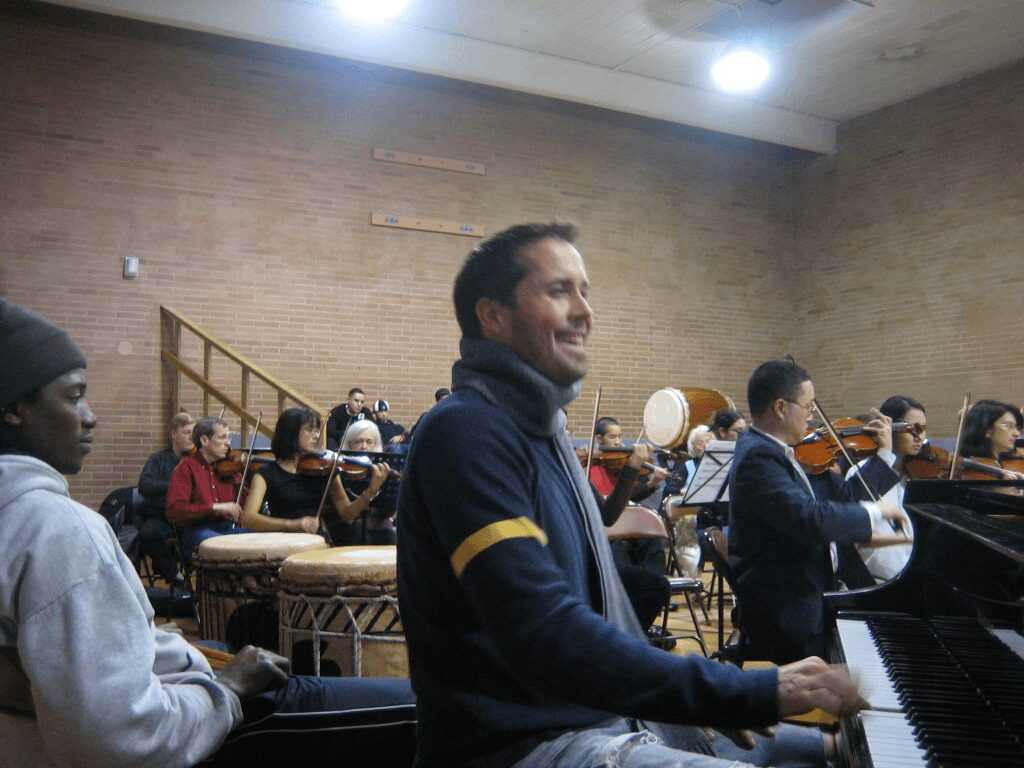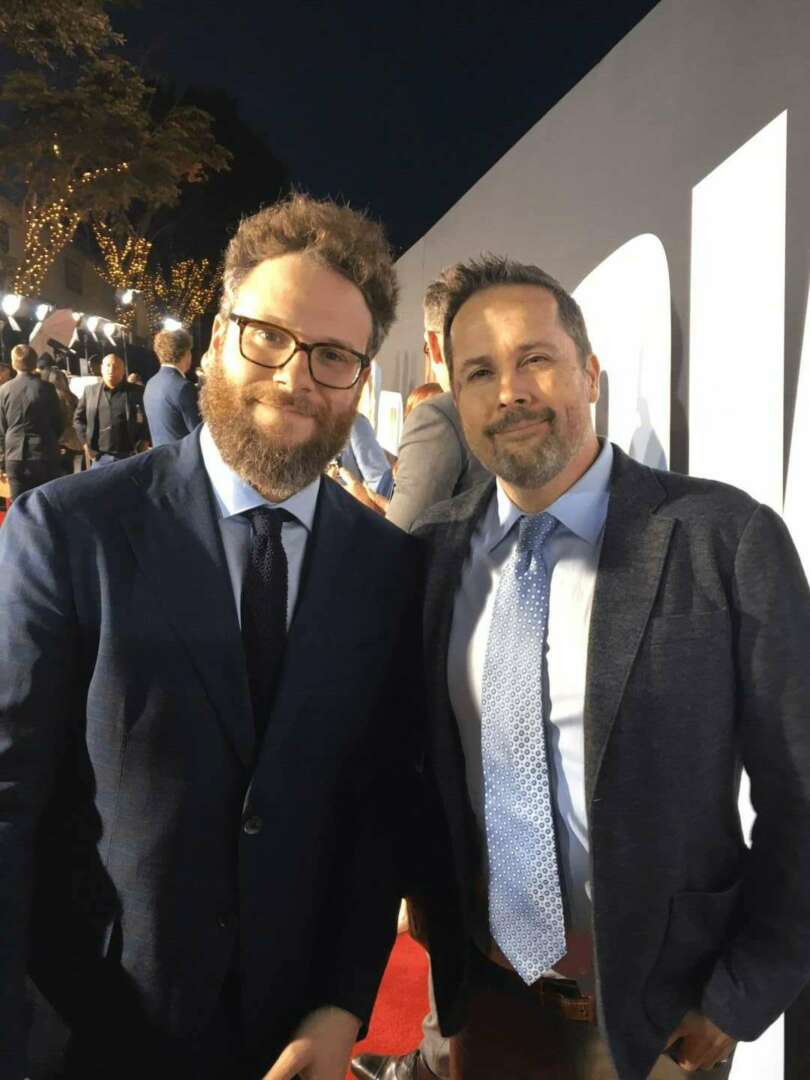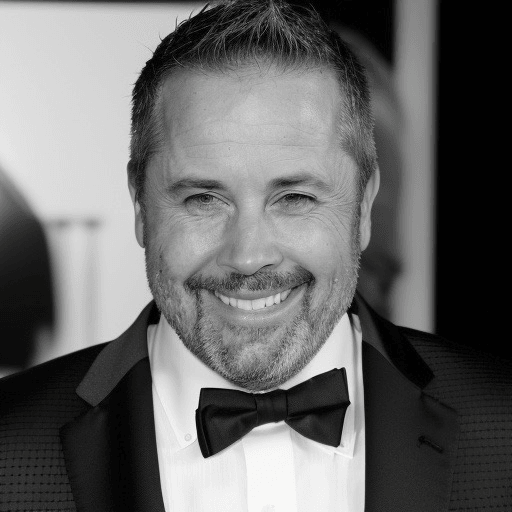We caught up with the brilliant and insightful Mateo Messina a few weeks ago and have shared our conversation below.
Mateo, thanks for joining us, excited to have you contributing your stories and insights. It’s always helpful to hear about times when someone’s had to take a risk – how did they think through the decision, why did they take the risk, and what ended up happening. We’d love to hear about a risk you’ve taken.
1995 was the year I realized I could possibly write a symphony without reading music. At the age of 22, I was recording music in our university’s studio when a student engineer introduced me to MIDI (Musical Instrument Digital Interface). He invited me to another studio and asked me to play one of my piano compositions. As I played, I saw the notation being printed on a screen. I couldn’t read music, so when I finished, I said, ‘This is a great communicator.’ He then mapped the sound of a flute to the keyboard, and I played it along with the piano. When he asked if I had prepared this, I said no. Next, he mapped the sound of a string section to the keyboard, and I played along with it. Again, he asked how I did it. I’ll never forget my response: ‘I don’t want to sound crazy, but I’ve always heard all of this in my head as I play the piano. I think I can write a symphony.’ I don’t know what compelled me to say that because I didn’t listen to classical music, had never studied music formally, and did not know how to read music. But, I loved playing music all my life; I was playing drums in a rock band at the time, and was also making solo piano records.
A couple of years later, after beginning a career in the tech industry (the Internet was quite new back then), I found myself walking past a construction site for a new symphony hall in downtown Seattle. Every time I passed it, I would say, ‘I’m going to play there someday.’ On a whim, I walked into the Seattle Symphony offices across the street and introduced myself. ‘Hi, my name is Mateo Messina, and I’m putting together an orchestra. I’d love to debut my first symphony here.’ Okay, I didn’t have an orchestra or a symphony, but I had my name right! The booker asked, ‘What are your credits?’ So, I showed him a couple of solo piano CDs I had made. He then said, ‘Well, we do want to bring local talent into the concert hall. I can’t put you in our big hall, but we can co-produce a concert with you in our recital hall.’ He then listed several requirements including a production plan, certificate of insurance, a deposit, etc. Three days later I showed up with all of it, including the deposit which was about a quarter of my life savings at that time. We had a great conversation that ended with him saying, ‘Okay, we open in September. You’ll be the ninth and tenth concert in the recital hall the first two Saturday nights in December. We look forward to seeing you in 7 months.’ I walked out onto 2nd Avenue thinking, ‘Oh, shit. I’ve got to figure out how to write a symphony!’
I sold my mountain bike, bought a keyboard, and borrowed a computer. When it came time to find the MIDI software, it was very expensive. So, I called a MIDI software company and said, ‘Hi, my name is Mateo Messina. I think I can write a symphony using your software and I’m booked in the new symphony hall in Seattle when it opens this fall. If I put your company’s name on my tickets and advertising, will you give me your software?’ Just a few days later, they sent me their software, and I started writing. I began with piano sketches. Once I finished, I was excited to map the instruments of the orchestra onto those ideas. Then it dawned on me, I didn’t know what they were. I had never studied classical music or music at all, for that matter. So, I went to the bookstore and bought a children’s book on the orchestra, which was perfect because it had pictures. That was the day I learned about the string, brass, woodwind, and percussion sections. Each instrument’s page had a photo of a piano with the range of that instrument shaded on the piano keys. I placed a piece of masking tape across the bottom of my keyboard and wrote in the range (high and low) of each instrument. Once I had this in place, I orchestrated my first symphony.
Once my music was ready, I recruited musicians from the University of Washington and other musician friends. I paid each one $100 to come play in the brand-new symphony hall. It was an easy sell. We rehearsed in a local church until one night, when we were accidentally locked out, we rehearsed at the trumpet player’s fraternity house. A few days before the concert, I was thinking about how we all want to know more about the music we listen to. I decided to tell the audience a short story about why I wrote each song. The best example of this was at the premiere when I asked the audience, “Do you remember your first love?” Immediately after, I asked, “What was their name?” Half the audience groaned while everyone else burst out laughing. I continued, “Do you remember how exciting it was to fall in love for the first time, to be flooded with all of these feelings? You probably mentioned their name all the time without noticing, laughed more, and couldn’t believe someone loved you!” Then I concluded, “That’s what this next piece is about,” and walked to the piano to start the piece for the orchestra to join in on a six-minute song all about first love. Of course, I wrote this from my own experience, but every person in the audience, whether with their boyfriend, girlfriend, husband, wife, or on their own, spent those six minutes thinking about their first love. I did this for nine other pieces of music (and emotions), and as one of my friends put it, “You emotionally exhausted all of us. We went through all of our lives and emotions.” That show was on a Saturday night and we sold out the next Saturday’s performance, which was when I began my life and career as a composer.
After this concert, a work colleague and now friend shared with me that his 6 year old daughter had recently passed away from a brain tumor, and there was a piano in the playroom of Seattle Children’s Hospital. I began volunteering at the hospital, playing piano and writing songs with kids undergoing treatment. During this time, I learned about a fund called “Uncompensated Care,” which allows the hospital to admit any child that comes to their door. I met many families who benefited from this fund and decided I would make each concert a fundraiser for this cause. I built a fundraising team from friends called The LUMA Guild. To date, these concerts have raised over $2 million for the hospital, and I’ve since served a nine-year term on the board.
A few years later, around the age of 26, I moved to Hollywood to become a composer for films and TV. After seven years of hustling, I landed my first studio feature film, which turned out to be the hit film “Juno.” The film received an Oscar, and we all received Grammys for the soundtrack. Since then, I’ve written the music for over 30 feature films and over 300 episodes of TV. Currently, I am writing my 25th symphony.
All of this came from one statement when I was 22 years old: “I think I can write a symphony.” I took a lot of chances, made a ton of mistakes along the way, but I stuck with it every day, and I’m very grateful I did.


As always, we appreciate you sharing your insights and we’ve got a few more questions for you, but before we get to all of that can you take a minute to introduce yourself and give our readers some of your back background and context?
In 1999, I wanted to move to Los Angeles to become a film composer. At the time, I was living in Seattle, where I found a company with open positions in both Seattle and Los Angeles. The job I was clearly qualified for was in Seattle, but I skewed my resume to lean towards the job in LA. After a series of interviews, I was offered the job in LA and given a relocation bonus. Once I arrived, I began my marketing & sales job but positioned myself to sit next to the acquisitions department of this short film startup. I let my colleagues know what I really wanted to do beyond my job description. Within a couple of months, one of our acquisitions team members told me they wanted to buy a short film and distribute it, but it had a song that was so expensive it wouldn’t make financial sense. I suggested meeting with the filmmaker to see if they’d be open to me rewriting the music to facilitate the purchase. That was the first of around 25 short films I worked on. Even better, the short film acquisitions team attended film festivals around the world and wanted to work with the best filmmakers. Therefore, I had the opportunity to work with some of the best filmmakers in our industry today when they were starting their careers too.
A couple of years into this job, the company decided to relocate to San Francisco. I was likely going to be fired, but one of my colleagues said he could figure out a way to get me rehired. I had always wanted to live in that city, but I remembered why I moved to LA in the first place: to become a film composer. So, I took the severance and started my career. I didn’t want to be a waiter or teacher to earn a living while pursuing my career, as I had seen how distracting those jobs can be. I decided the best way to earn a living was to compose music for commercials. I interviewed at a few music houses in LA and NY, and the money was decent. However, after talking with some junior music executives at ad agencies, I realized I could make a living if I could just land three or four commercials a year. I did one regional ad and made enough money to buy plane tickets and fly around to New York, San Francisco, Seattle, Dallas, and Chicago. I made a ton of calls, both on the phone and in person. I took people to lunch, dropped off demos, and hustled. I built a big enough book of business to live on while pursuing my dream of composing for films.
In Hollywood, I attended every social filmmaker/musician event I could find. I joined clubs like the Society of Composers and Lyricists, went to ASCAP events, and continued taking people to lunch. One day, I even posed as my screenwriter friend’s assistant and went onto the Fox studio lot with him. While there, I visited a production company I had heard was making short films and offered my musical services to them. I confessed how I had gotten into the studio and gave her my demo. The next month, I was working on a short film for them, albeit without pay. But I learned more about my craft and met a lot of incredible people.
Each day, I spent a few hours on my craft of composing and the rest of my time developing business. I took many people to lunch, asked a ton of questions, received great advice from experienced composers, and even found a few great mentors. It was one of those short film directors I met at my first job who hired me to write the music for their studio film. With the luck of that film being a hit, I went on to write music for many films and TV shows, and made a career as a full-time composer. At times, I am asked to write music for a particular film or TV show, but the hustle never stops. Nowadays, it is different though, since meeting with many studio executives, producers, and directors feels like meeting with friends, as many of us have already collaborated on projects together.


Are there any resources you wish you knew about earlier in your creative journey?
The resource that has served me best comes from within. It’s confidence. Having the confidence to persevere through a massive amount of “no’s” to find those few yes’ has served me incredibly well. Most often, what I see stopping people from achieving their goals is themselves. Throughout my life I’ve just asked for what I want and I’ll admit I’ve been so surprised how often people say yes. Just ask and see what happens.


What do you think is the goal or mission that drives your creative journey?
If I look back through the films and shows I’ve written for or the subjects of all of my symphonies, I’ve realized my mission and creative expressions come from sharing this with others: “You are valuable, you are loved, your story is important.” Sometimes people can use these words as a reminder to believe in themselves.
Contact Info:
- Website: https://www.mateomessina.com
- Instagram: https://instagram.com/mateomessina
- Facebook: https://www.facebook.com/mateomessinacomposer
- Linkedin: https://www.linkedin.com/in/mateo-messina-b959b
- Youtube: https://www.youtube.com/@mateomessinamusic


Image Credits
red carpet photos by Sarah Kovacs


